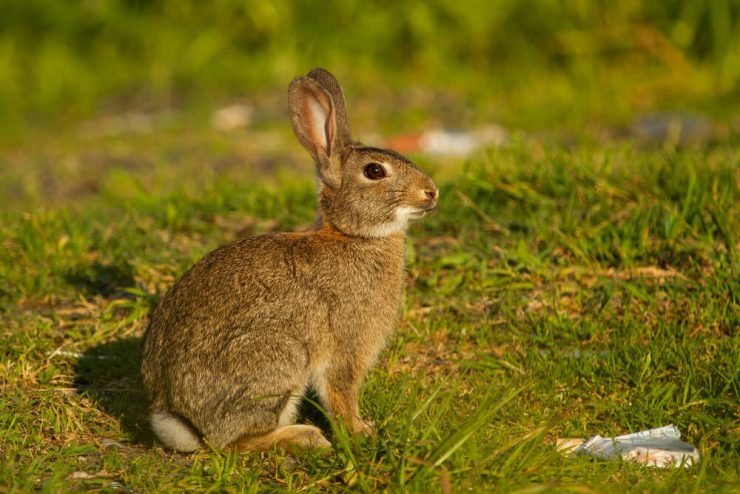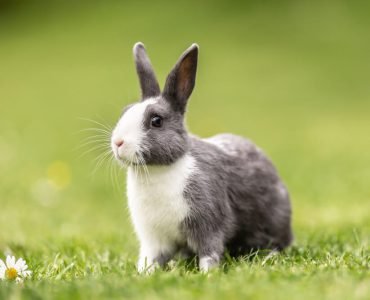Are you a proud pet rabbit owner? Have you ever wondered if it’s safe for your fluffy friend to drink milk? Well, the truth may surprise you. This eye-opening article will uncover the truth behind the age-old question: Can rabbits safely drink milk? While milk is a staple for many of us, it’s essential to understand that rabbits have unique dietary needs. As experts in rabbit care, we’ll delve into the specifics of their digestive system and explore whether milk is a suitable addition to their diet. Prepare to have your assumptions challenged as we reveal the facts and uncover the potential risks and benefits of providing milk to your beloved bunny. By the end of this article, you’ll have a clear understanding of whether milk is a safe treat or a potential hazard for your furry friend. Get ready to separate fact from fiction as we get to the bottom of this popular query.
The myth of rabbits drinking milk
One of the most common misconceptions about rabbits is that they can safely drink milk. This belief may stem from our milk consumption and the assumption that all mammals can tolerate it. However, rabbits have a unique digestive system that differs significantly from ours. While they may enjoy the taste of milk, it is not suitable for their overall health.
Rabbits are herbivores, meaning their diet primarily consists of fresh hay, vegetables, and pellets specifically formulated for their nutritional needs. Their digestive system is designed to process fibrous plant material efficiently. On the other hand, milk is rich in lactose, a type of sugar that requires the enzyme lactase to be correctly digested. Unfortunately, rabbits lack the necessary enzymes to break down lactose, leading to digestive issues when consumed in large quantities.
It’s crucial to dispel the myth that rabbits can safely drink milk to ensure the well-being of these adorable creatures. While offering your rabbit a saucer of milk may seem harmless, it can harm their health and lead to severe digestive distress.
The dangers of giving milk to rabbits
Providing milk to rabbits can have several negative consequences. Firstly, as mentioned earlier, rabbits lack the digestive enzymes necessary to break down lactose. This can result in bloating, gas, and diarrhea, which are uncomfortable and potentially life-threatening conditions for rabbits.
Also, milk is high in fat, which is unsuitable for rabbits. Their digestive system is designed to process low-fat, high-fiber foods, and a sudden influx of fat can disrupt their delicate balance. This can lead to obesity, liver problems, and other health issues.
Moreover, milk can act as a laxative for rabbits, causing an imbalance in their gut flora and potentially leading to an overgrowth of harmful bacteria. This can result in gastrointestinal stasis, a condition where the digestive system slows down or stops altogether. Gastrointestinal stasis can be life-threatening if not promptly addressed by a veterinarian.
Considering these risks, it is evident that giving milk to rabbits is not only unnecessary but potentially harmful. It’s crucial to prioritize the health and well-being of our furry friends by offering them a diet that aligns with their unique nutritional needs.
The nutritional needs of rabbits

Understanding the nutritional needs of rabbits is crucial for their overall health. As herbivores, rabbits require a diet rich in fiber, with an emphasis on fresh hay. Hay provides essential roughage that helps maintain proper digestion and keeps their teeth healthy.
In addition to hay, rabbits should consume a variety of fresh vegetables. Leafy greens like kale, spinach, and romaine lettuce are excellent choices. It’s essential to introduce new vegetables gradually to avoid digestive upset. Pellets specifically formulated for rabbits can also be included in their diet, but they should be given in moderation as a supplement to their hay and vegetables.
Water is also a vital component of a rabbit’s diet. Fresh, clean water should always be available to them to ensure proper hydration. However, this leads us back to the initial question: Can rabbits safely drink milk as an alternative source of hydration?
Healthy options for rabbit hydration
While milk is not a suitable option for rabbits, there are several healthy alternatives to keep them hydrated. Water is the most essential source of hydration for rabbits, and it should always be readily available to them. Ensure your rabbit’s water bowl or bottle is clean and filled with fresh water daily. Regularly check the water supply to ensure it hasn’t run out or become contaminated.
In addition to water, rabbits can benefit from fresh vegetables and fruits with high water content. Cucumber, lettuce, and celery are excellent choices. These can be offered as part of their daily diet to provide additional hydration and essential nutrients.
Another option is to provide your rabbit with a ceramic or metal water bowl filled with water-soaked vegetables. This can be a fun and interactive way to keep your rabbit hydrated, as they’ll enjoy nibbling on the vegetables while meeting their hydration needs.
Signs of dehydration in rabbits
It’s crucial to be vigilant and recognize the signs of dehydration in rabbits. Rabbits can become dehydrated quickly, so early detection is essential. Some common signs of dehydration in rabbits include:
- Sunken eyes: If your rabbit’s eyes appear sunken or lack their usual brightness, it may indicate dehydration.
- Dry mouth and nose: A dehydrated rabbit may have a dry mouth and nose, lacking the usual moisture.
- Reduced appetite: Dehydration can lead to a loss of appetite in rabbits.
- Decreased urine output: A significant decrease in your rabbit’s urine output could be a sign of dehydration.
- Lethargy and weakness: Dehydration can cause rabbits to become lazy and weak.
If you observe any of these signs in your rabbit, it’s essential to seek veterinary care immediately. Dehydration can quickly escalate and lead to severe health complications.
Rabbit-friendly beverages
Apart from water and water-rich vegetables, a few rabbit-friendly beverages can help keep your furry friend hydrated. Herbal teas, such as chamomile or peppermint, can be offered in small amounts. These teas should be diluted with water and served at room temperature. Avoid using tea bags with added flavors or caffeine, as these can harm rabbits.
Another option is to offer diluted fruit juice as an occasional treat. Ensure that the juice is free from added sugars and preservatives. Dilute the juice with water to minimize the sugar content, and serve it in small quantities.
It’s important to note that these alternative beverages should never replace water as your rabbit’s primary hydration source. They should only be offered in moderation and as an occasional treat.
How to properly hydrate your rabbit
Proper hydration is crucial for the health and well-being of your rabbit. To ensure that your fluffy friend remains adequately hydrated, follow these tips:
- Provide fresh, clean water daily: Ensure your rabbit has access to clean water. Regularly check the water bowl or bottle to ensure it hasn’t become contaminated or empty.
- Offer water-rich vegetables: Include vegetables with high water content, such as cucumber and lettuce, in your rabbit’s daily diet. These will provide additional hydration while supplying essential nutrients.
- Use water-soaked vegetables: Provide your rabbit with a ceramic or metal water bowl filled with water-soaked vegetables. This will encourage them to nibble on the vegetables while hydrating themselves.
- Monitor water intake: Keep an eye on your rabbit’s water intake. If you notice a sudden decrease in their water consumption, it could indicate an underlying health issue. Contact your veterinarian if you have any concerns.
By following these guidelines, you can rest assured that your rabbit receives the proper hydration needed to thrive.
Common misconceptions about rabbit hydration
In addition to the misconception about rabbits drinking milk, there are several other common misconceptions about rabbit hydration. Let’s address some of these to ensure that you have accurate information about caring for your furry friend.
Rabbits don’t need water
This is false. Water is crucial for a rabbit’s overall health and well-being. Dehydration can lead to serious health complications, so always providing fresh, clean water is essential.
Rabbits can rely solely on vegetables for hydration
While vegetables with high water content can contribute to a rabbit’s hydration, they should never replace water as the primary source of hydration. Water should always be readily available to your rabbit.
Rabbits can drink any milk
As discussed earlier, rabbits lack the necessary enzymes to digest lactose properly. Regardless of the type, milk is unsuitable for rabbits and can lead to digestive issues and other health problems.
It’s important to rely on accurate and reliable information sources when caring for your rabbit. Consult with a veterinarian specializing in exotic animal care to address any specific concerns or questions.
Expert advice on rabbit nutrition
When it comes to your rabbit’s nutritional needs, it’s always best to seek advice from experts in the field. A veterinarian specializing in exotic animal care can provide valuable guidance on your rabbit’s diet and hydration needs. They can recommend specific types of hay, vegetables, and pellets that align with your rabbit’s unique requirements.
Additionally, a veterinarian can assess your rabbit’s overall health and ensure their hydration needs are met. Regular check-ups are essential for monitoring your rabbit’s well-being and addressing potential health concerns early on.
Remember, providing proper nutrition and hydration for your rabbit is crucial for their longevity and quality of life. By following expert advice and prioritizing their unique dietary needs, you can ensure your fluffy friend remains healthy and happy for years.
Conclusion: Keep your rabbits safe and hydrated
In conclusion, the myth that rabbits can safely drink milk is just that—a myth. Rabbits lack the digestive enzymes to break down lactose, making milk unsuitable for their delicate digestive system. Giving milk to rabbits can lead to digestive issues, obesity, and other health problems.
To keep your rabbit adequately hydrated, offer fresh, clean water. Include water-rich vegetables in their diet and monitor their water intake closely. While alternative beverages such as herbal teas and diluted fruit juice can be offered in moderation, they should never replace water as the primary source of hydration.
By understanding your rabbit’s nutritional needs and providing them with the proper care, you can ensure their health and well-being. Consult a veterinarian specializing in exotic animal care for expert advice on rabbit nutrition and hydration. You can keep your beloved bunny safe, happy, and hydrated with the correct information and attention to their unique needs.




